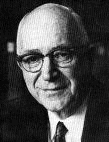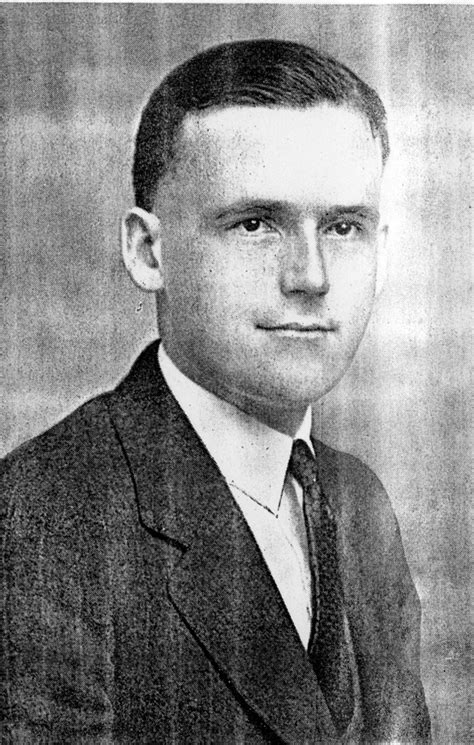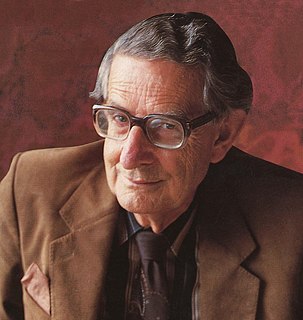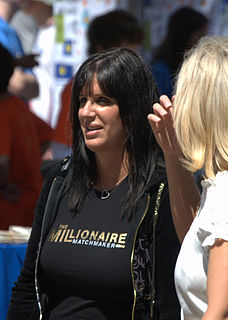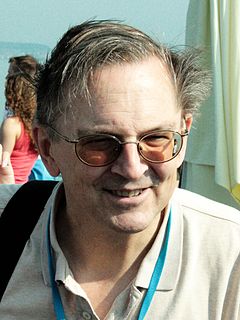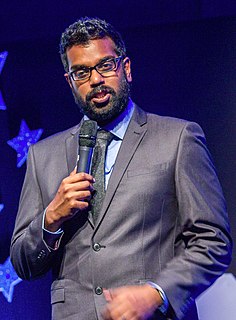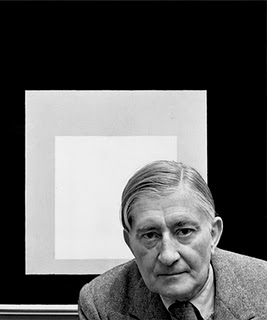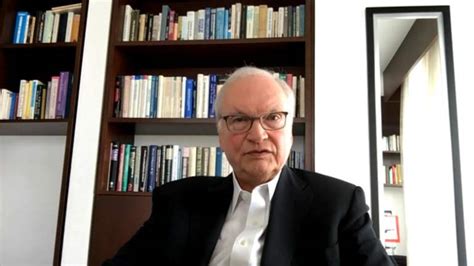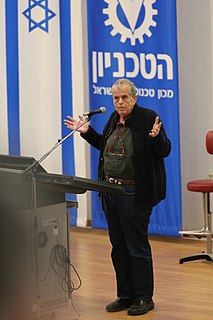Top 1200 Scientist Quotes & Sayings - Page 17
Explore popular Scientist quotes.
Last updated on November 17, 2024.
I grew up in Muenchen where my father has been a professor for pharmaceutic chemistry at the university. He had studied chemistry and medicine, having been a research student in Leipzig with Wilhelm Ostwald, the Nobel Laureate 1909. So I became familiar with the life of a scientist in a chemical laboratory quite early.
My father was the editor of an agricultural magazine called 'The Southern Planter.' He didn't think of himself as a writer. He was a scientist, an agronomist, but I thought of him as a writer because I'd seen him working at his desk. I just assumed that I was going to do that, that I was going to be a writer.
I've always said as a political scientist that "culture" is what we use when we can't explain things. I think it's more about accessibility. Part of the problem is that this is an expensive game [golf]. I know in a couple of places where there are black members, and they come from pretty much the same socioeconomic level that the white members come from.
I really liked the idea of playing that kind of optimistic, super-intense, go-get-'em spirit combined with being a little bit of an outsider. I am really drawn to girls of that age in general, who believe they can be a waitress, scientist, actress, a dentist, a zookeeper...and who really aren't boy-crazy.
But weightier still are the contentment which comes from work well done, the sense of the value of science for its own sake, insatiable curiosity, and, above all, the pleasure of masterly performance and of the chase. These are the effective forces which move the scientist. The first condition for the progress of science is to bring them into play.
I must admit that any favorable mention of the flying saucers by a scientist amounts to extreme heresy and places the one making the statement in danger of excommunication by the scientific theocracy. Nevertheless, in recent years I have investigated the story of the unidentified flying object (UFO), and I am no longer able to dismiss the idea lightly.
You get these moments of thrill. There you are, at 3:00 in the morning, and you know something about how we evolved that nobody else in the world knows. It's a thrill of discovery. You make this breakthrough, and you find something. It's this wonderful, wonderful scavenger hunt when you got to the end. It's just so great to be a scientist.
I always felt that a scientist owes the world only one thing, and that is the truth as he sees it. If the truth contradicts deeply held beliefs, that is too bad. Tact and diplomacy are fine in international relations, in politics, perhaps even in business; in science only one thing matters, and that is the facts.
As a health scientist at Columbia University, Les Roberts, pointed out, sooner or later people are going to be looking at a child in a wheelchair suffering from polio and will say 'the Americans did that to him'. So they continue policies which have similar effects i.e. organising the Taliban. This will come back to them too.
Men like to provide for women and their families. It's in their DNA. I'm obviously no scientist, but I bet if you could hear a Y-chromosome talk, it would say, 'I want to provide and hunt.' When the woman is the primary breadwinner, it's going against nature. I'm not saying that it's bad or wrong, I'm just saying that it can feel off.
There is a beauty in discovery. There is mathematics in music, a kinship of science and poetry in the description of nature, and exquisite form in a molecule. Attempts to place different disciplines in different camps are revealed as artificial in the face of the unity of knowledge. All literate men are sustained by the philosopher, the historian, the political analyst, the economist, the scientist, the poet, the artisan and the musician.
The scientist does not defy the universe. He accepts it. It is his dish to savor, his realm to explore; it is his adventure and never-ending delight. It is complaisant and elusive but never dull. It is wonderful both in the small and in the large. In short, its exploration is the highest occupation for a gentleman.
As a scientist, I play in the top league - the Olympics, the World Championships - and I want to be in the lead. As a runner, I set personal goals, and I want to push beyond my own personal limits. I was very happy when I practiced for several months and then reached my goal to run a marathon in 2:50.
We see an ever-increasing move toward inter and trans- disciplinary attacks upon problems in the real world ... The system scientist has a central role to play in this new order, and that role is to first of all understand ways and means of how to encode the natural world into "good" formal structures.
And although I have seen nothing but black crows in my life, it doesn't mean that there's no such thing as a white crow. Both for a philosopher and for a scientist it can be important not to reject the possibility of finding a white crow. You might almost say that hunting for 'the white crow' is science's principal task.
I don't think any administration, when they come in, thinks that their job is to tell the scientists what the science looks like or to be quiet about the science. Scientists need to remain true and not allow science to be politicized. Scientists are not politicians, and no politician should consider themselves to be a scientist.
A science can diagnose a cancer and can even find a cure for it, but it can't, and a scientist will be the first to say, it's can't help you to deal with the stress and disappointment and terror that comes with a diagnosis, and nor can it help you to die well, like Socrates, kindly, not railing against faith, but in possession of your own death. For these imponderable questions people have turned to mythos.
From early childhood, I was interested in understanding how the world worked, and assumed I would be some kind of physical scientist or chemist. But the truth was, I didn't know there was another kind of world, the inner world, that was just as interesting, if not more relevant, than what was going on in the outside world.
All the scientist creates in a fact is the language in which he enunciates it. If he predicts a fact, he will employ this language, and for all those who can speak and understand it, his prediction is free from ambiguity. Moreover, this prediction once made, it evidently does not depend upon him whether it is fulfilled or not.
Incapable of conjuring up any facial expression that she did not learn from watching television, Jessica Alba plays a brilliant scientist who inadvertently acquires the ability to make herself invisible. This is not a gift Alba seems particularly comfortable with, as the last thing she needs is to be heard but not seen.
When the signal reached LIGO from a collision of two stellar black holes that occurred 1.3 billion years ago, the 1,000-scientist-strong LIGO Scientific Collaboration was able to both identify the candidate event within minutes and perform the detailed analysis that convincingly demonstrated that gravitational waves exist.
If it makes you feel any better, you’re not as bad as Keith. He was here earlier today and was so nervous, he literally kept looking over his shoulder.” Lee paused thoughtfully. “I think it might have been because Adrian kept laughing like a mad scientist at those old black-and-white movies he was watching.
Mosts scientist are unable to arrive at a specific definition of biological evolution. “Biological evolution is… change in the properties of populations of organisms (you and me) that [happen during] the lifetime of a single individual. The changes in populations that are considered evolutionary are those that are inheritable via the genetic material from one generation to the next
I have flown twice over Mount St. Helens out on our West Coast. I'm not a scientist and I don't know the figures, but I have a suspicion that that one little mountain has probably released more sulfur dioxide into the atmosphere of the world than has been released in the last ten years of automobile driving or things of that kind that people are so concerned about.
I have been intimately involved in the techniques of genetic modification as a scientist since GMOs were first conceived. In that time, hundreds of studies and tests have been done on GMO safety - and we've seen no scientific evidence that GMOs are inherently more dangerous than crops produced by traditional plant breeding.
Our job should be like any other forensic scientist's - we should be truth seekers who are not partisan, who do not have any interest in the outcome, who call it as we see it no matter the consequences. But it seems a lot easier for chemists and anthropologists and pathologists to take that neutral role than it does for psychiatrists.
My father left me with his love of Jewish studies and cultural life. To this very day, along with several physicians and scientist colleagues, I take regular periodical lessons taught by a Rabbinical scholar on how the Jewish law views moral and ethical problems related to modern medicine and science.
A biologist, if he wishes to know how many toes a cat has, does not "frame the hypothesis that the number of feline digital extremities is 4, or 5, or 6," he simply looks at a cat and counts. A social scientist prefers the more long-winded expression every time, because it gives an entirely spurious impression of scientificness to what he is doing.
A visitor to Niels Bohr's country cottage, noticing a horseshoe hanging on the wall, teasing the eminent scientist about this ancient superstition. "Can it be true that you, of all people, believe it will bring you luck?'
'Of course not,' replied Bohr, 'but I understand it brings you luck whether you believe it or not.'
Science is a field which grows continuously with ever expanding frontiers. Further, it is truly international in scope. Science is a collaborative effort. The combined results of several people working together is often much more effective than could be that of an individual scientist working alone.
Faith just doesn't have anything to do with what I'm doing as a scientist. It's nice if you can believe in God, because then you see more of a purpose in things. Even if you don't, though, it doesn't mean that there's no purpose. It doesn't mean that there's no goodness. I think that there's a virtue in being good in and of itself. I think that one can work with the world we have.
I'll tell you what you need to be a great scientist. You don't have to be able understand very complicated things. It's just the opposite. You have to be able to see what looks like the most complicated thing in the world and, in a flash, find the underlying simplicity. That's what you need: a talent for simplicity.
I believe that we are a story-driven species and that we understand how things are put together, in the context of narrative. It's a shame that science hasn't been taught that way, in a long time. It's usually the fact completely devoid of any human experience or any idea of how the scientist came to that conclusion.
It is high time that laymen abandoned the misleading belief that scientific enquiry is a cold dispassionate enterprise, bleached of imaginative qualities, and that a scientist is a man who turns the handle of discovery; for at every level of endeavour scientific research is a passionate undertaking and the Promotion of Natural Knowledge depends above all on a sortee into what can be imagined but is not yet known.









